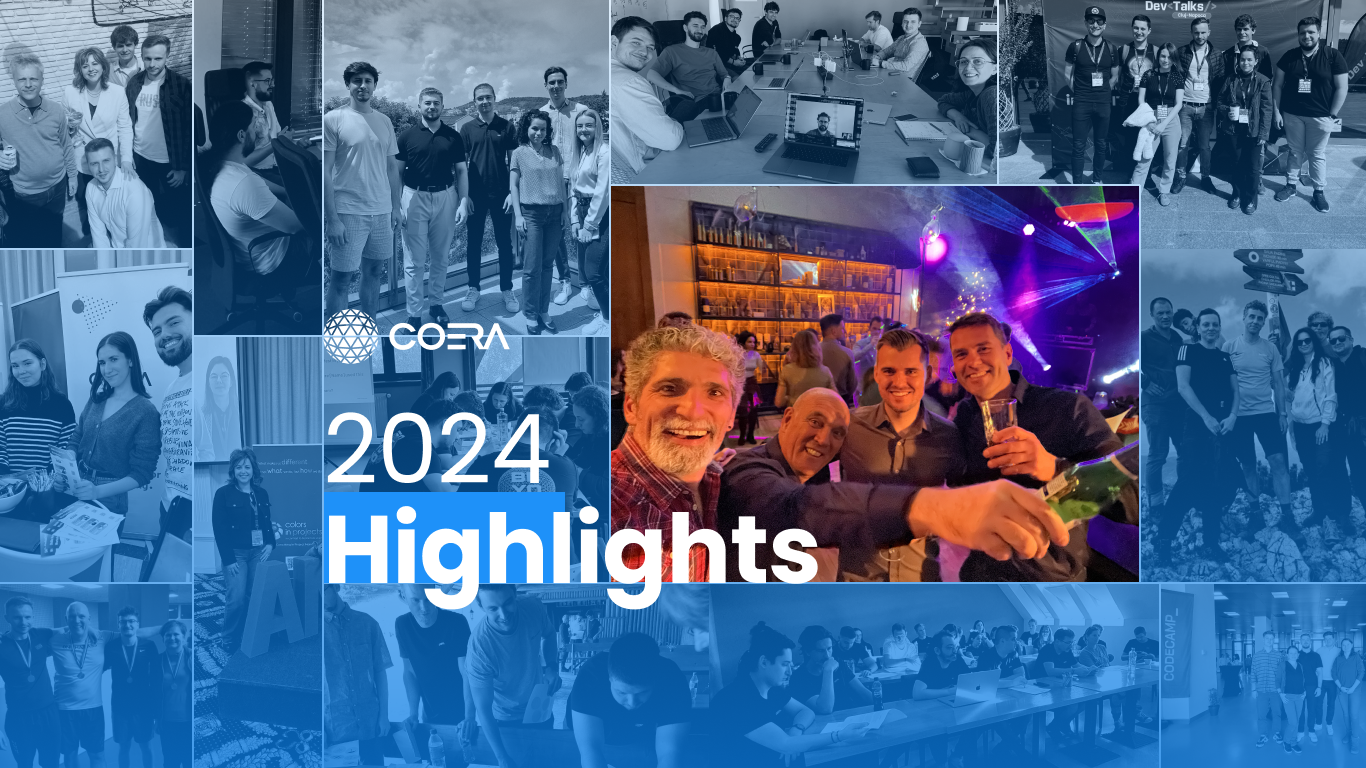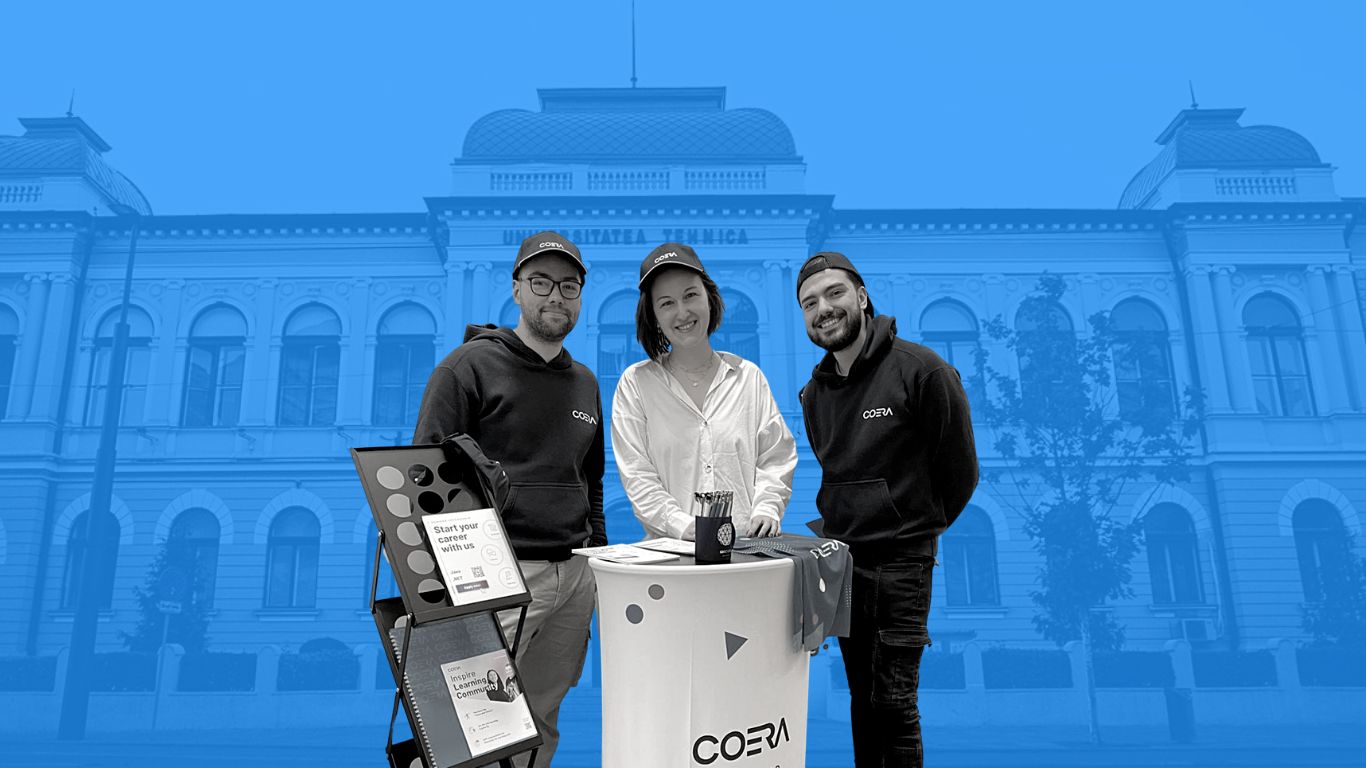Hi, my name is Emőke, I am currently studying at the “Babes-Bolyai” University and at the same time I am running my internship at COERA...my first time in an IT company.
Did you ever feel overwhelmed with abstract terms, tons of abbreviations & somewhat unearthly languages? Well…in this series of blogposts I’d like to take the opportunity to shed some light in the darkness & describe my findings in a mundane way, accessible for all.
This first post will be about the SEO landing pages. What are those?
SEO stands for Search Engine Optimization and it is the activity attempting to improve organic search engine rankings.
Google’s mission is to organize the universally accessible information, it also provides you with do’s and don’ts to optimize pages for search engines. By checking the keywords, the security and the quality of a webpage, these engines can list the organic (not paid) search results according to relevance. Now this is where the story gets interesting, where does Google send you? Well… to a landing page with built-in features to convince the algorithm that the content is appealing for the searcher.
Any webpage can be considered a landing page if searchers land on it, for example the homepage of a site. Any landing page has a single purpose- to grab the searchers’ attention and get them go to another part of your site or on someone else’s site. Think as if you walk around the city and see all the giant billboards offering you the personalized hoodie you always wanted. On a landing page you can for example offer information, list special offers or provide the client with contact information.
When I got to this part, I was asking myself: is it enough to have one perfect landing-page? The answer was no, because one landing page could never answer all question of your target audience. So, in order to cover all the needs of a potential client (offering contact information, providing a product catalog, showing the special offers etc.) you will need to create more than just one page: just enough and with the right content. It depends on your target group: imagine you were selling clothes, you could design three different category landing pages: for men, women and children clothing, and some other for special offers. Landing pages work like billboards, you create the content according to your target group and try to influence the search engines to list it in the top results, so searchers are able to find you. I mean, you can put a billboard in the middle of the woods, the question is: will your target group pass by…? Only if you target deer.
Q&A
1. How does Google match keywords and search-phrases to a list of search results?
With his Search Engines. Throughout the years there were many different algorithms, such as: “Hummingbird”, “Panda” and “Penguin”; these lovely “creatures” gave a really hard time for search engine optimizers, because many of the previously used tactics(keyword-stuffing, link farming etc.) were banned. These algorithms basically search through your page and decide whether it will be shown or not for the searcher.
2. Do you recall those search results that pop-up first in Google and on the left side it says Ad?
This is a SEA (Search Engine Advertising) technique, meaning that the website pays Google so the site will be revealed above the organic results. While SEO is a free technique, SEA means that the website pays for each click they get and therefore the cost of SEA can become very high, especially when bidding for competitive keywords.
3. Have you seen those web cookies? They are neither SEO, nor SEA.
Let’s go back to our little billboard simile, when you search for a special Game of Thrones Hoodie, you enter to a page that asks you to accept the “cookies”. With accepting it, you allow the webpage to follow you while you continue to browse the web. It’s like once you give food to a stray dog, it won’t leave your side, but cookie-based ads will also show your desired hoodie repeatedly.
These targeted ads collect both the data you provided and your browsing history, they might not know you personally (they could see you as Human nr. 1), but they are still able to define your characteristics: for ex.Human nr. 1 viewed this Game of Thrones Hoodie in a Large size, male – they already know the following things: your gender and that you love G.o.T. If you search for train tickets from place A to B, they will now your age interval (according to the ticket type) and your possible location.
This is all I’ve got for you today, see you next time when we continue to explore the world behind!
As for COERA, it is continuously researching Search Engine Optimization practices & continues investing in their SEO landing page generation platform targeted towards companies that have challenges promoting very large product catalogues on the web like travel agencies, booking sites and digital warehouses.

Using B2B IAM to drive food waste management

The Story of 2024 in Chapters

Go beyond: Unleashing the Power of LLMs and RAG

Stay cozy and stay organized: A developer's guide to productivity

Becoming Streetwise: Mastering AI's Challenges in Software Development

NLDigital membership

Success stories: Diana

VoxxedDays 2023 afterthoughts

BTS: Career fairs
